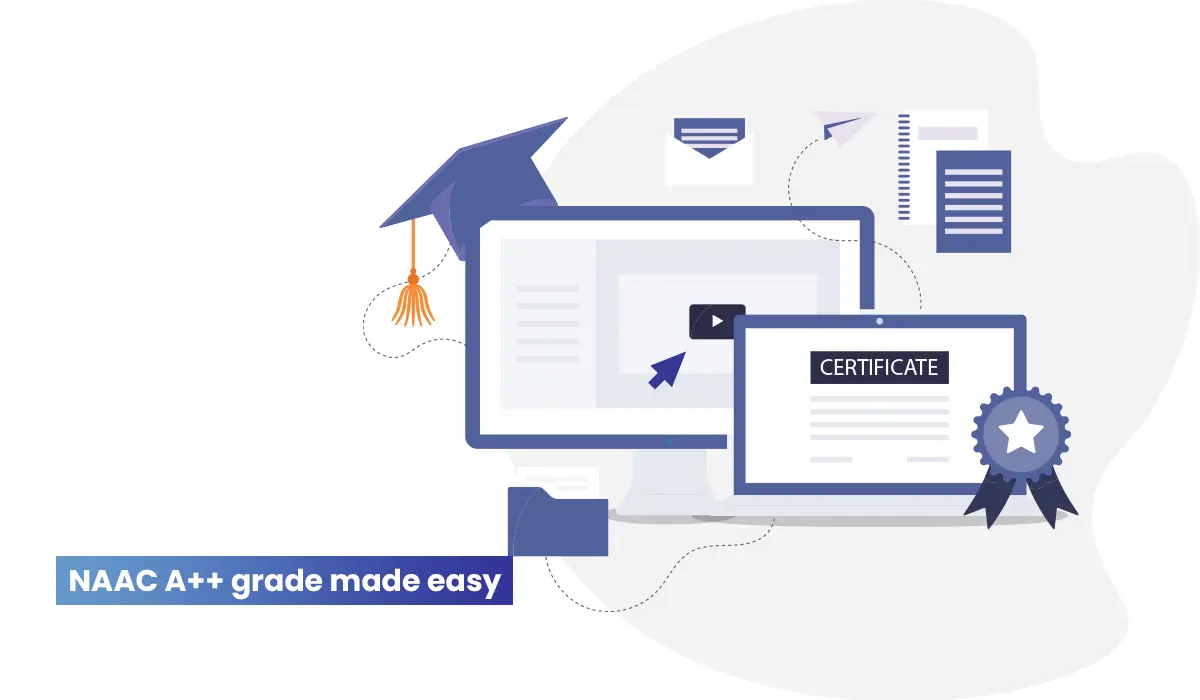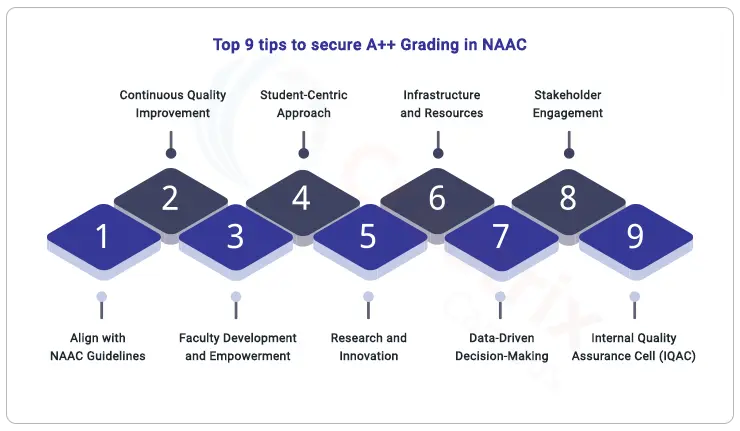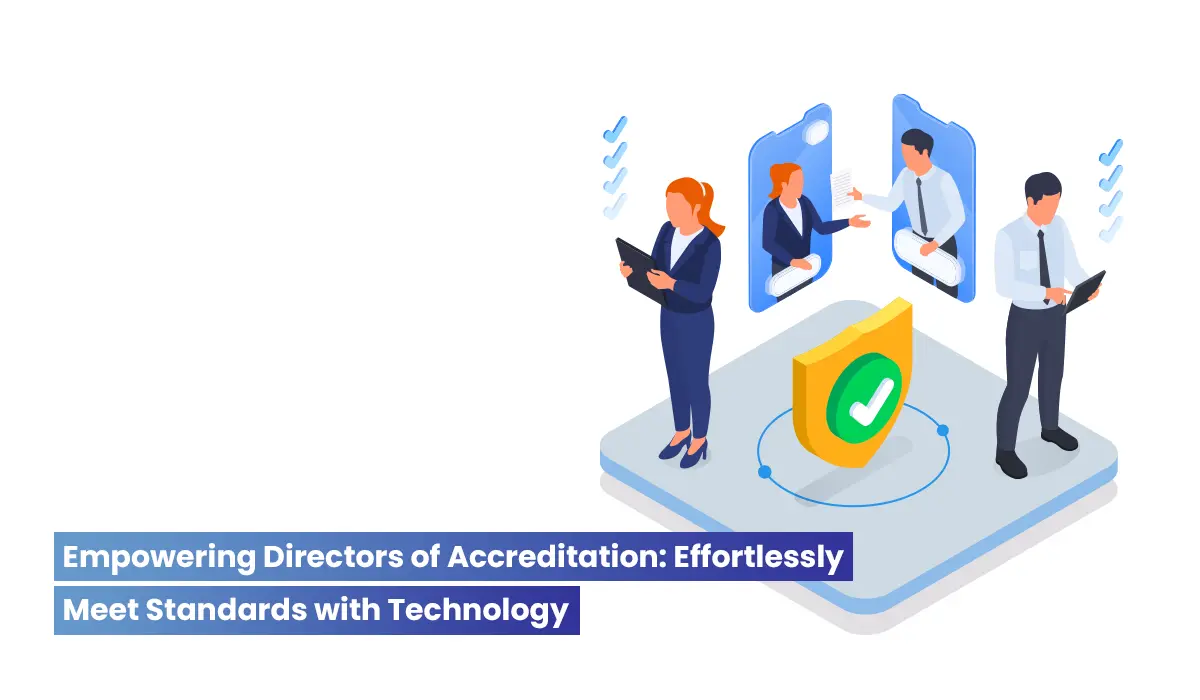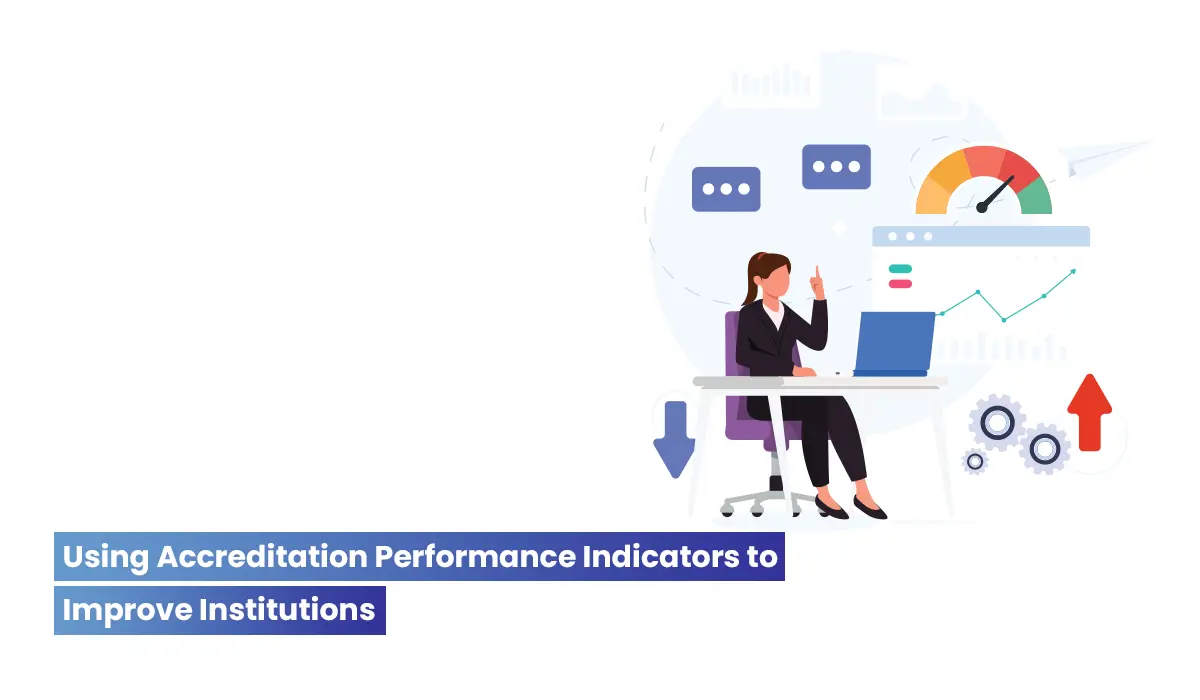9 pointers that will help you secure A+ and A++ grading in your NAAC Accreditation

Achieving excellence in higher education is a shared aspiration for educational institutions worldwide. One prestigious benchmark that validates this pursuit is the National Assessment and Accreditation Council (NAAC) accreditation. NAAC is a nodal agency tasked with evaluating and assessing the quality of higher education institutions in India. The coveted A+ and A++ grades signify the pinnacle of academic achievement and institutional quality, while NAAC A Grading, encompassing various levels of accreditation, is equally esteemed. Here's a detailed look at each of the nine key pointers to help your institution secure these top-tier grades and attain NAAC A Grading status.
Top 9 tips to secure A grading in NAAC

The list of NAAC’s Metrics and Key Indicators for the attainment of the desired score is indeed lengthy. Let’s slim-cut them all. Our research invested in this area has helped us sum up on points to consider, which will help you make attain, the less attainable.
1. Align with NAAC Guidelines
NAAC preparation cannot happen in a day or a month or even in a year. It’s a steady process that includes developing competencies and being ready in the fields of funding, academics & research, establishing infrastructure, etc. The first step to success is to understand the NAAC structure. Make sure your institution adheres to the NAAC standards in all of its goals, policies, and procedures. Learn about the evaluation process and standards for A+ and A++ ratings. For instance, the institution's vision and mission statements must be in line with the accrediting standards because NAAC places a lot of importance on them.
2. Continuous Quality Improvement
Institutional excellence is an ongoing journey. Implement a culture of continuous quality improvement that permeates every aspect of your institution. Regularly assess and enhance your academic programs, infrastructure, and support services. It's essential to set up mechanisms for periodic program reviews, faculty feedback, and student satisfaction surveys to identify areas that need improvement.
3. Faculty Development and Empowerment
Invest in the professional advancement of your faculty. Encourage them to attend workshops, conduct research, and develop their talents. The overall quality of education is greatly improved by faculty who are empowered. Supporting faculty growth improves the standard of instruction while also boosting research output, which is one of the main requirements for NAAC accreditation.
4. Student-Centric Approach
Prioritize student success. Create an environment that fosters holistic development, focusing on academic excellence, extracurricular activities, and student support services. Students should be at the heart of your institution's mission. For NAAC, student-centricity involves not only academic excellence but also a focus on student support, guidance, and feedback mechanisms to ensure their well-being.
5. Research and Innovation
Promote a culture of research and innovation among faculty and students. Publish research findings, engage in collaborative projects, and encourage innovative thinking. Demonstrable research output greatly enhances your institution's credibility. NAAC places considerable emphasis on research publications, patent applications, and innovation, so this is a critical aspect to focus on.
6. Infrastructure and Resources
Ensure your institution has the necessary infrastructure and resources to support quality education. Modern facilities, well-equipped laboratories, and a robust library system contribute to a conducive learning environment. It's important to align your infrastructure development with your academic goals and NAAC requirements.
7. Data-Driven Decision-Making
Leverage data analytics to make informed decisions. Monitor key performance indicators, track student outcomes, and assess institutional effectiveness. Data-driven insights help you identify areas for improvement. Establishing an Institutional Data Management System (IDMS) is crucial for this, as it aids in data collection, analysis, and reporting, which NAAC values highly.
8. Stakeholder Engagement
Get the whole team heads in—Vice-Chancellor, Director, Deans, Heads of Departments. Their presence can add better clarity, commitment, potential, and preparedness to the NAAC preparation process. Ensure that nowhere they are demotivated-the faculty working under them will get retarded too. Accreditation is not only about maintaining a compelling engagement between the IQAC and Steering Committee but also the entire leadership unit.
9. Internal Quality Assurance Cell (IQAC)
Establish a robust IQAC that oversees the institution's quality enhancement activities. The IQAC plays a pivotal role in ensuring compliance with NAAC guidelines and facilitating the accreditation process. It should function as the coordinating and monitoring body for quality assurance efforts within the institution.
Winding it up
In our quest to secure the coveted A+ and A++ grades in NAAC accreditation, we've explored nine crucial pointers that form the cornerstone of institutional excellence. These guidelines not only reflect the high standards set by NAAC but also serve as a roadmap for nurturing academic brilliance and quality enhancement within your institution.
The journey towards A+ and A++ grades in NAAC accreditation is a path paved with dedication, continuous improvement, and an unwavering commitment to students' success. However, navigating the intricacies of NAAC accreditation can be a complex and time-consuming process. That's where Creatrix Campus Accreditation Management Software comes into play. It streamlines and simplifies the entire accreditation journey, ensuring that you remain compliant with NAAC standards while focusing on your institution's core mission—providing top-notch education.
With Creatrix Campus, you gain access to a comprehensive suite of tools and resources that take complete care of NAAC accreditation requirements. From managing documentation and assessments to tracking key performance indicators and streamlining the accreditation process, Creatrix Campus empowers your institution to achieve and maintain the highest levels of excellence.
So, take the first step towards excellence today. Explore how Creatrix Campus Accreditation Management Software can propel your institution to the pinnacle of academic achievement. Contact our team to know more.



